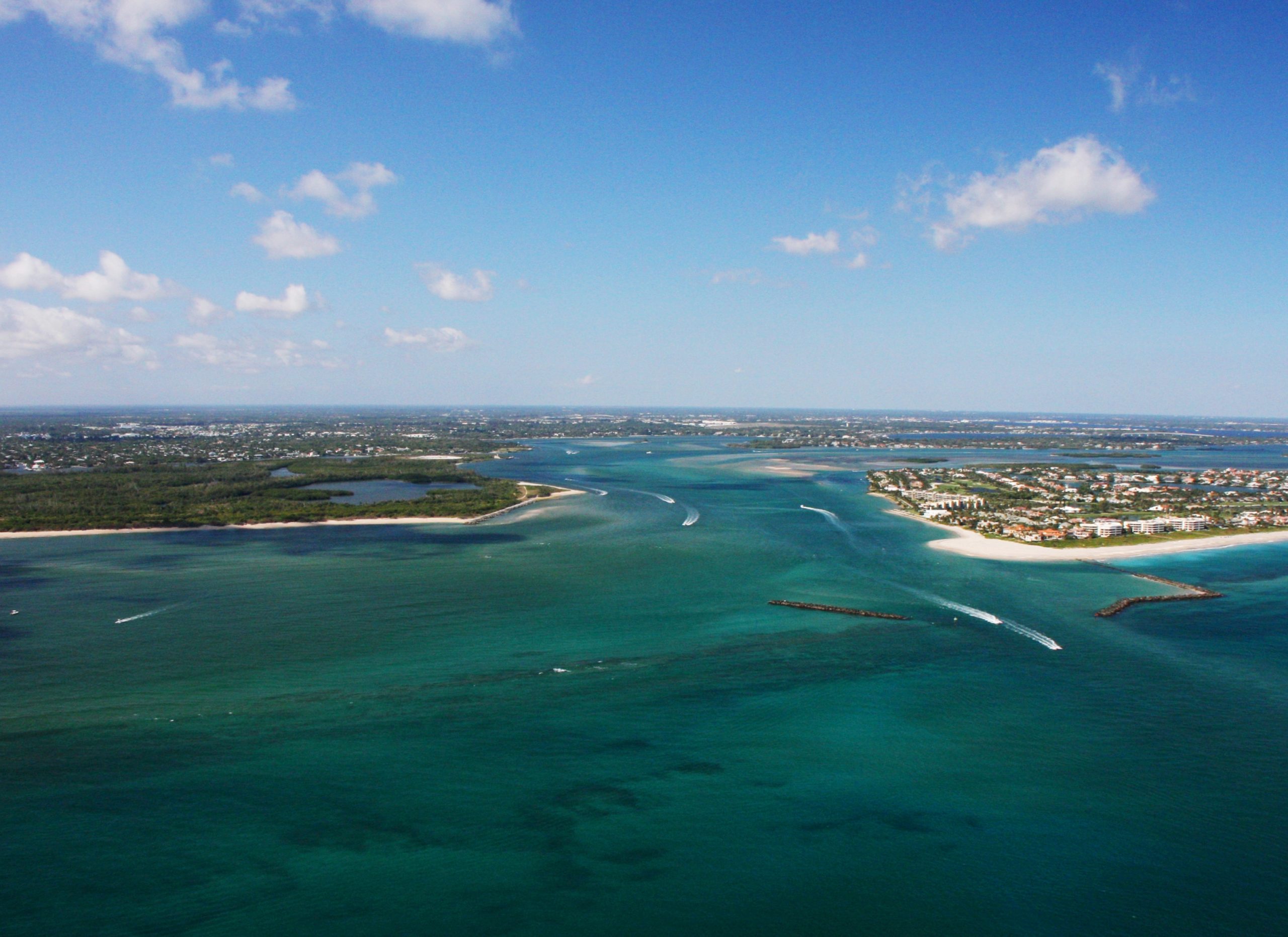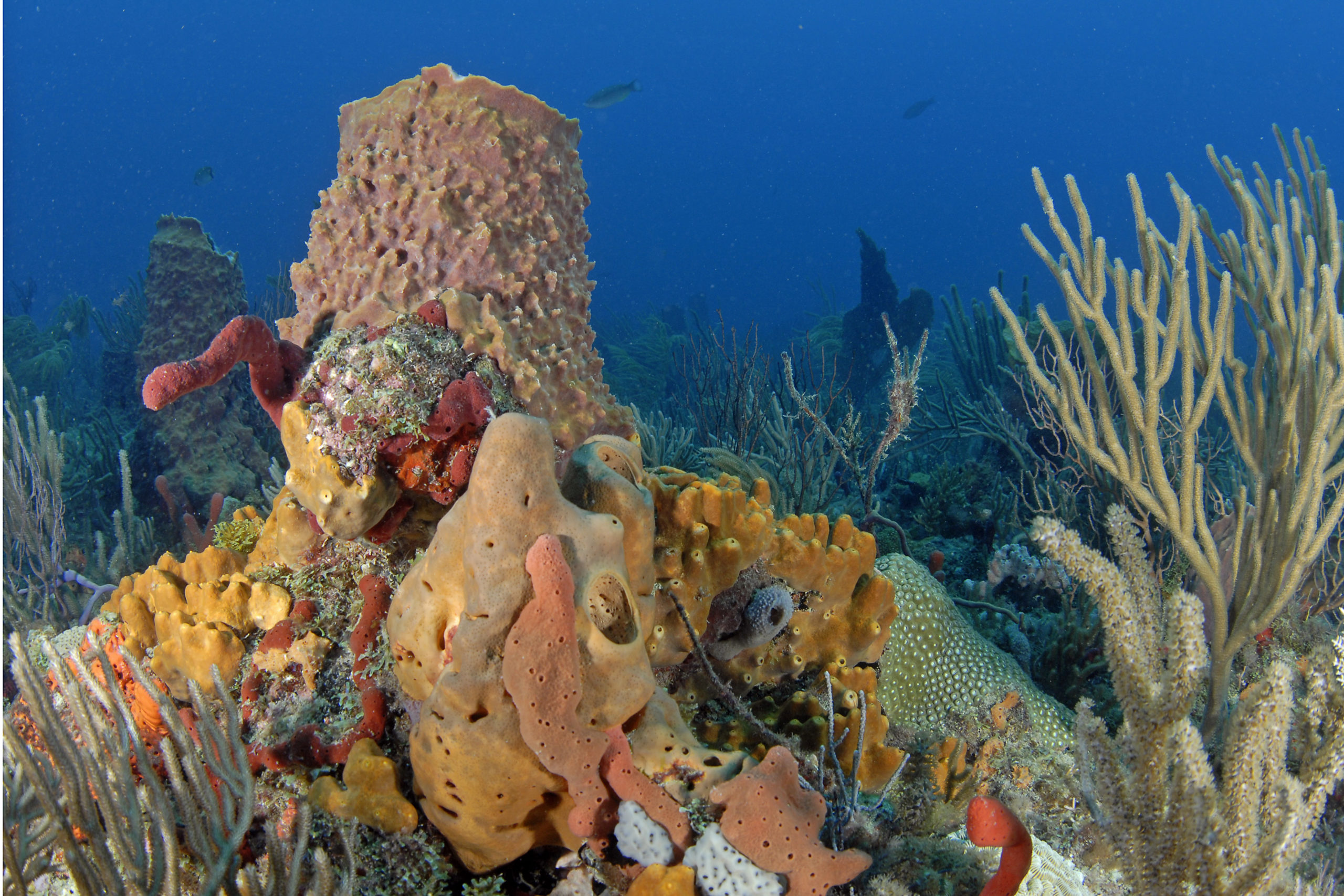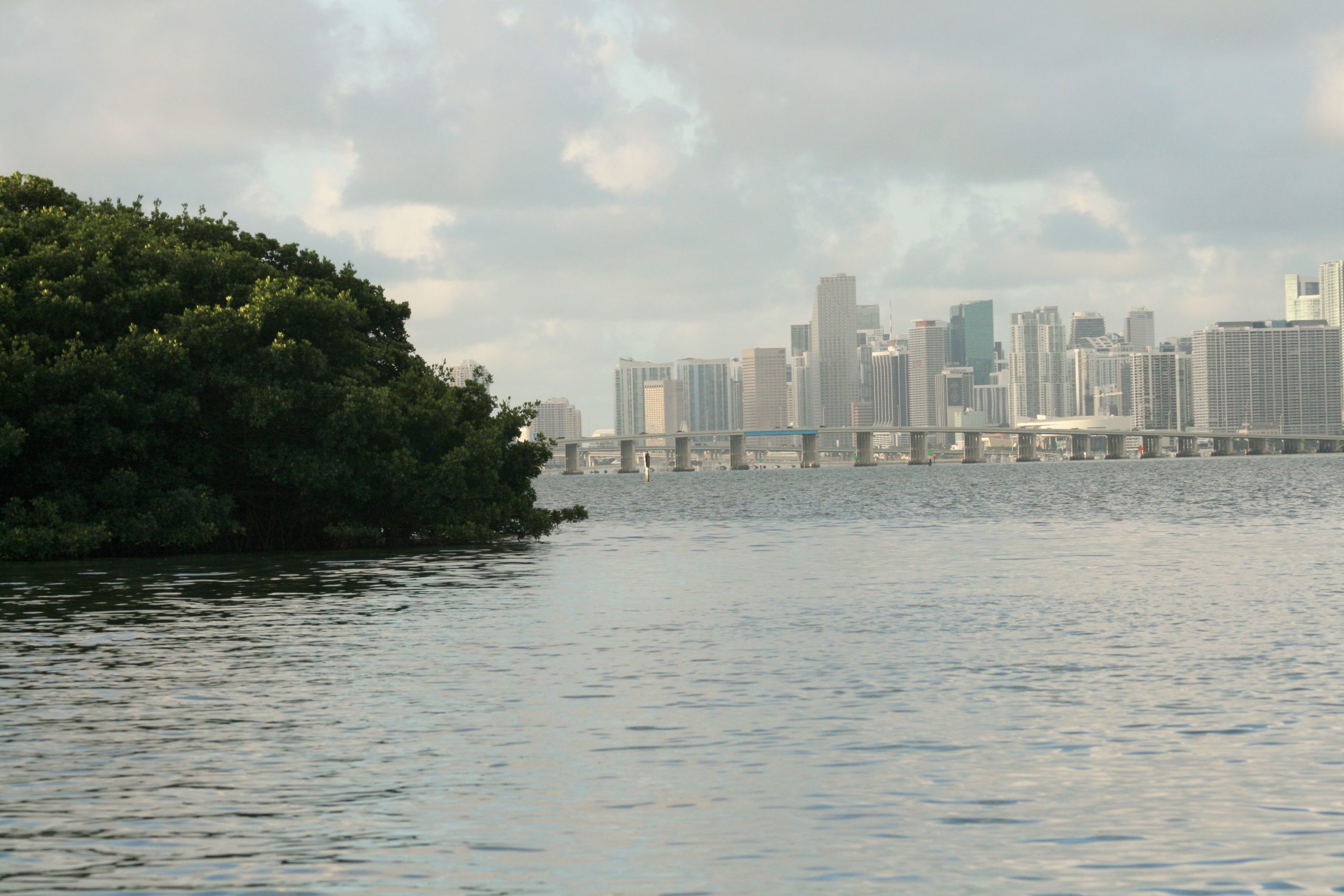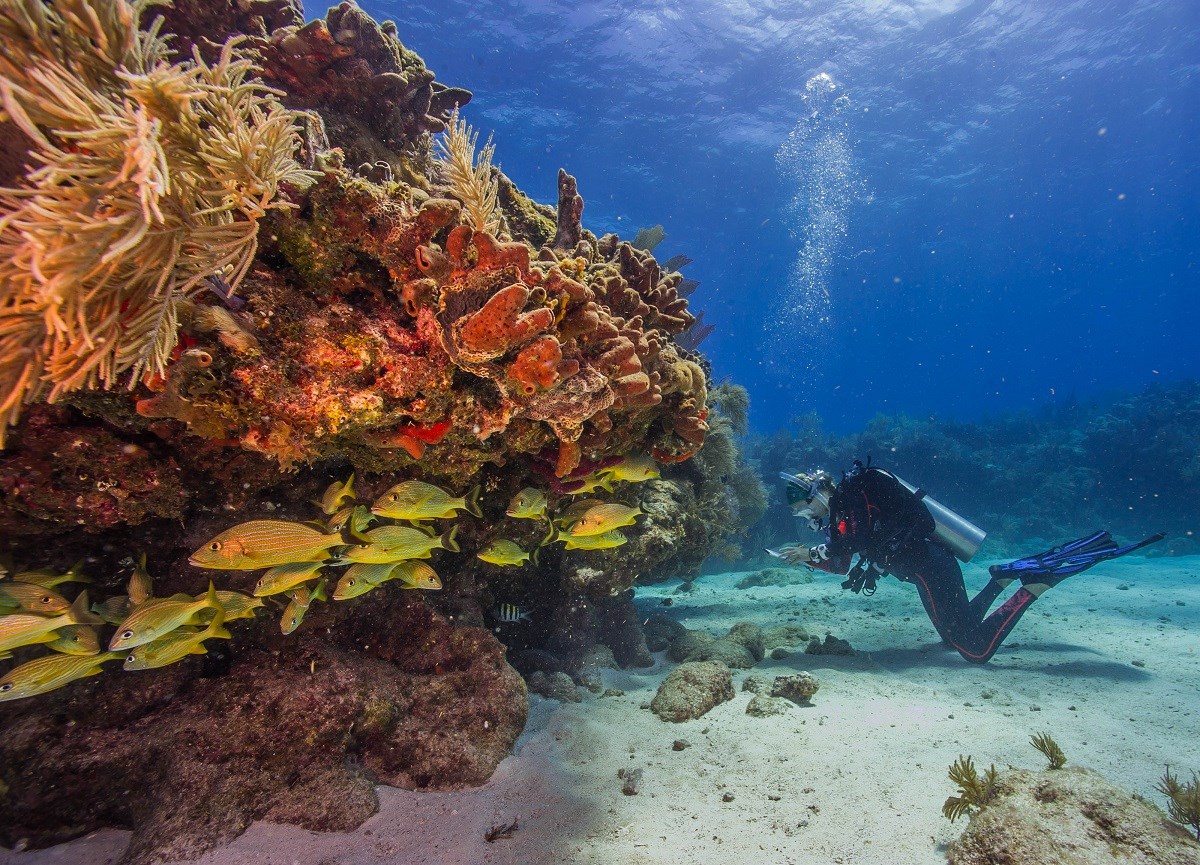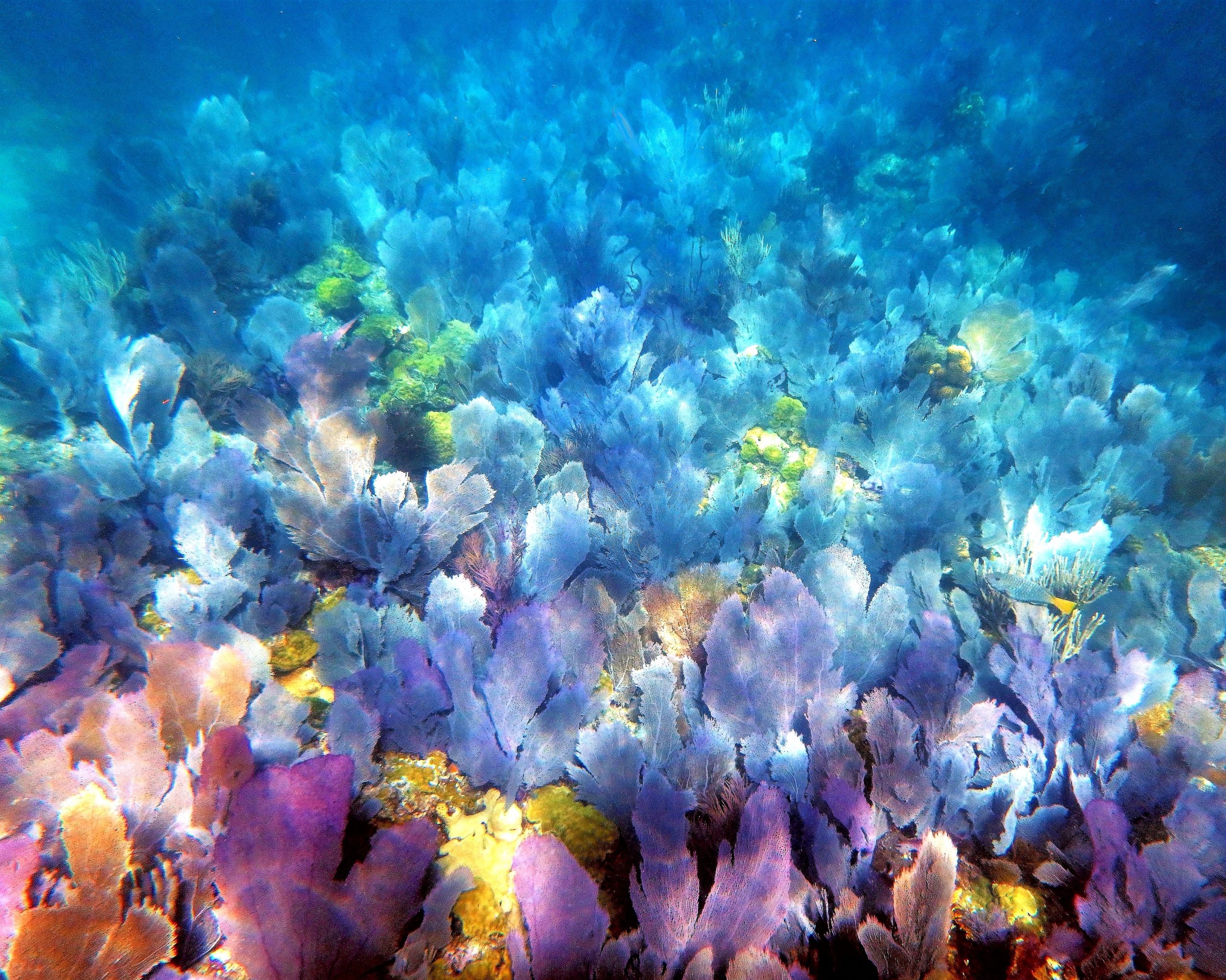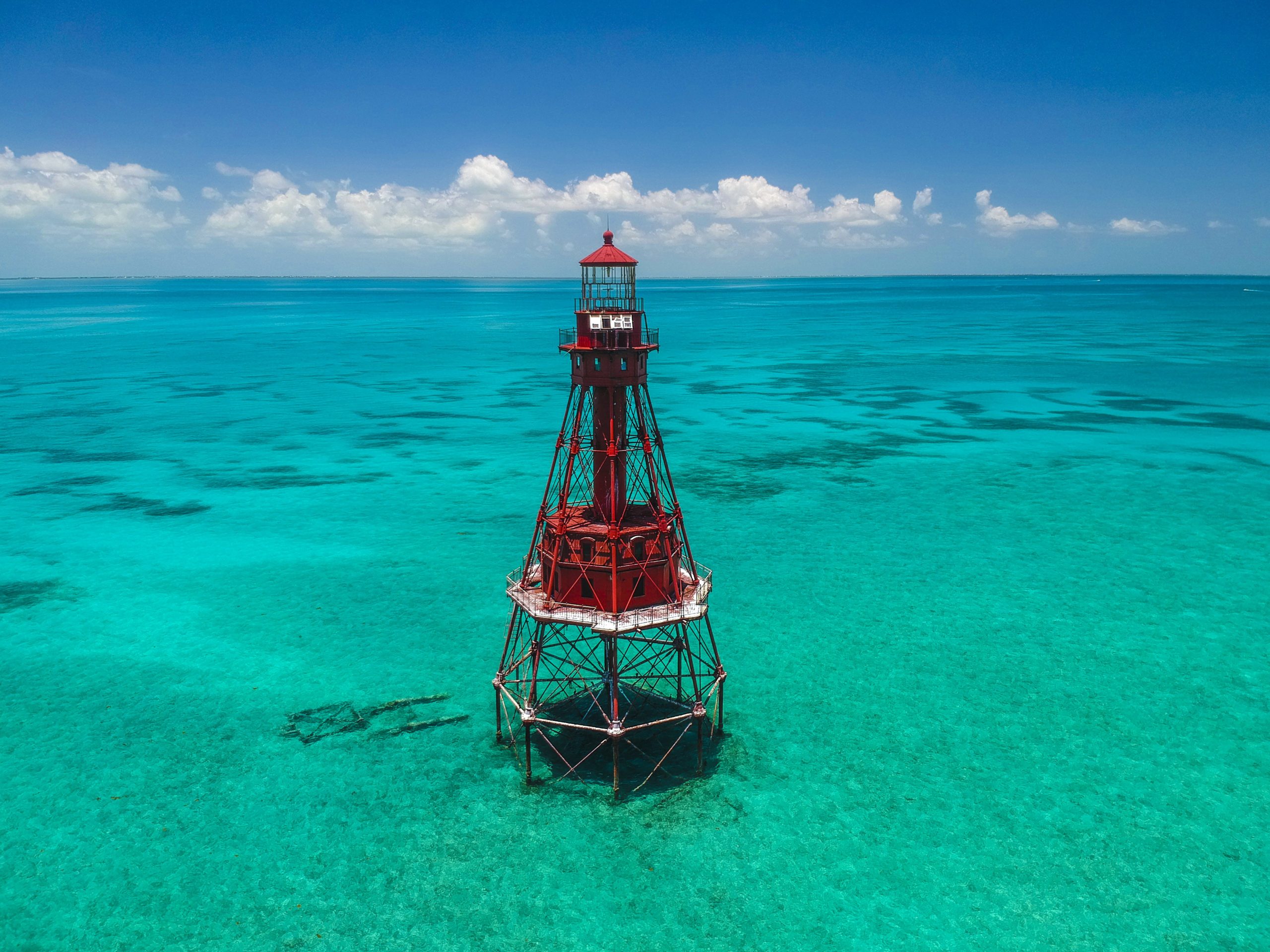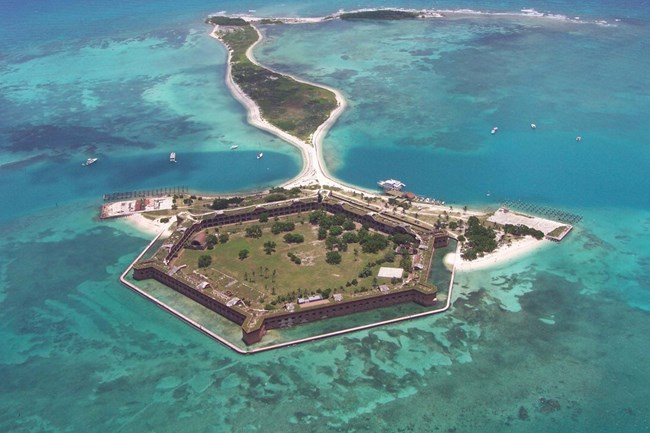Partner Organizations
The Florida Department of Environmental Protection is the state’s principal environmental agency, created to protect, conserve and manage Florida’s environment and natural resources. The department enforces federal and state environmental laws, protects Florida’s air and water quality, cleans up pollution, regulates solid waste management, promotes pollution prevention and acquires environmentally sensitive lands for preservation. The agency also maintains a statewide system of parks, trails and aquatic preserves.
In October 2020, the Coral Protection and Restoration Program was established within DEP’s Office of Resilience and Coastal Protection to administer more than $15 million appropriated for critical efforts, including the new $10 million Coral Protection and Restoration Grant. Through its role in supporting Florida’s membership on the U.S. Coral Reef Task Force and the U.S. All Islands Committee, the Coral Reef Conservation Program leads the implementation of the Southeast Florida Coral Reef Initiative and contributes to the National Action Plan to conserve coral reefs. The Coral Reef Conservation Program is also charged with coordinating response to vessel groundings and anchor damage incidents in southeast Florida and developing strategies to prevent coral reef injuries.
Read More
In honor of the NFL and America’s military veterans, FORCE BLUE spearheaded 100 Yards of Hope, a year-long coral reef restoration effort in the waters off South Florida. A year-and-a-half in the making, through two Florida Super Bowls and with the world’s largest entertainment platform as its backdrop, 100 Yards of Hope is the story of how an eclectic group of marine scientists and special operations veterans came together as a team. And how, in their fight to preserve and restore Florida’s Coral Reef, that team built a symbol for the world.
Read More
The Florida Aquarium actively participates in and promotes stewardship of the natural environment as part of our mission of conservation. As a 501(c)(3) not-for-profit organization, The Florida Aquarium provides an opportunity to see over 8,000 aquatic and terrestrial animals, explore complex ecosystems, look for wild dolphins in Tampa Bay, play at the Splash Pad and more!
The Florida Aquarium is working to protect and restore our blue planet on many conservation fronts, including research and rescue efforts that help restore Florida’s sea turtle and coral populations and to ensure that sharks continue to swim our seas. In August of 2019, The Florida Aquarium, in partnership with Project Coral, became the first to successfully spawn critically endangered pillar coral in a laboratory.
Read More
The Fish & Wildlife Foundation of Florida is a nonprofit 501(c)(3) organization that seeks to protect our outstanding animals and plants and the lands and waters they need to survive. They work closely with the Florida Fish and Wildlife Conservation Commission (FWC) and many other public and private partners. Since its founding in 1994, the foundation has raised and donated more than $43 million for conservation and outdoor recreation, including youth outdoor education.
Read More
With a mission to manage Florida’s fish and wildlife resources for their long-term well-being and the benefit of people, FWC is responsible for conserving and managing fish and wildlife, and their habitats. FWC meets this responsibility with a combination of research, management, recreational opportunities, outreach and law enforcement. This includes conservation programs for imperiled species; land acquisition to provide habitat for a diversity of wildlife species; managing terrestrial, marine, estuarine and freshwater habitats to benefit the widest possible array of fish and wildlife while providing quality recreational experiences such as hunting, fishing and wildlife viewing.
Read More
Force Blue is the only nonprofit organization in the world that provides “mission therapy” for former combat divers — individuals in whom governments around the world have invested millions to create the best possible underwater and maritime operators — by retraining, retooling and deploying them on missions of conservation, preservation and restoration.
By uniting the community of Special Operations veterans with the world of marine science and conservation in one, mission-focused program, Force Blue has created a model of caring, cooperation and positive change with the power to restore lives and restore the planet. Harkening back to the days of Jacques Cousteau and the French Commando frogmen he trained, Force Blue is creating a modern-day cadre of elite combat veterans with the aptitude and ability to achieve great things on the conservation front, and the visibility to let the world actually know about it.
Read More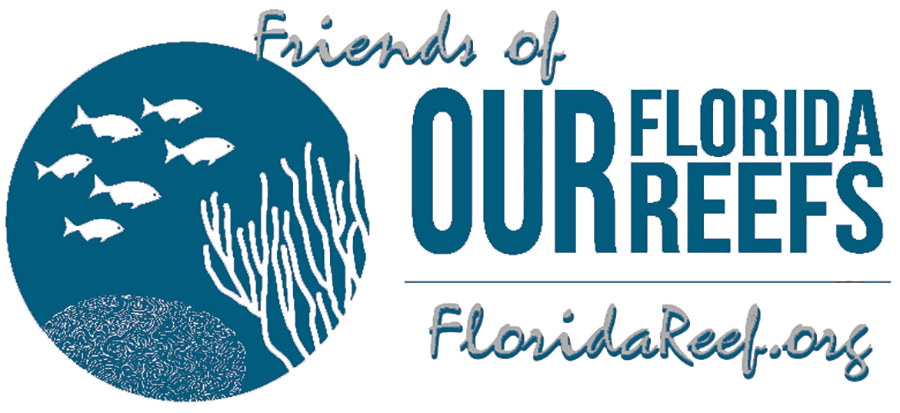
Friends of Our Florida Reefs (FOFR) was founded in April 2015 as a 501c3 nonprofit, non-governmental citizen support organization, inspired in part by the state’s Our Florida Reefs community planning process. FOFR’s mission is to assist and enhance the critical efforts of DEP to conserve and protect the northern section of the Florida’s Coral Reef by filling significant budget gaps, preparing for rapid response to emergencies, and self-initiated direct action, education and outreach.
As a dedicated citizen support organization, FOFR will work in concert with governmental agencies and like-minded nonprofit organizations committed to keeping this vital natural resource healthy and bountiful for the diverse indigenous wildlife that call it home, and the millions of people living and/or vacationing in Southeast Florida.
Read More
Upon completion of its second recruitment and training deployment in the Florida Keys, FORCE BLUE unveiled “PROJECT PROTECT”, the nonprofit organization’s plan to move all its operations to South Florida for the next three years (2019-21) to assist the state in its ongoing efforts to rescue, preserve and restore the vitally important, critically threatened Florida’s Coral Reef.
As part of its 3-year, $9 million “PROJECT PROTECT” initiative, FORCE BLUE will be mounting an aggressive, statewide campaign aimed at educating individuals, local businesses and Florida-based corporations about the importance of Florida’s coral reefs and the need to preserve them.
Read More
Reef Relief is a nonprofit membership organization based in the Florida Keys that is dedicated to improving and protecting our coral reef ecosystem through education and outreach. Their goal is to focus on rigorous science to educate the public and advocacy toward policy-makers to achieve conservation, protection and restoration of coral reefs. Increase public awareness of the importance and value of living coral reef ecosystems and scientific understanding and knowledge of living coral reef ecosystems.
They also aim to strengthen grassroots community-based efforts to protect coral reef ecosystems through many volunteer programs. Reef Relief helps design, develop, support and implement strategies for marine protected areas associated with coral reef ecosystems. We encourage and support eco-tourism as part of sustainable community development that protects and preserves coral reef ecosystems.
Read More
The Smithsonian Institution is the world’s largest museum, education and research complex, with 19 museums and the National Zoo—shaping the future by preserving our heritage, discovering new knowledge and sharing our resources with the world.
The Institution was founded in 1846 with funds from the Englishman James Smithson (1765–1829) according to his wishes “under the name of the Smithsonian Institution, an establishment for the increase and diffusion of knowledge.” We continue to honor this mission and invite you to join us in our quest.
Read More
The South Florida Water Management District is a regional governmental agency that manages the water resources in the southern half of the state, covering 16 counties from Orlando to the Florida Keys and serving a population of 8.7 million residents. It is the oldest and largest of the state’s five water management districts.
Created in 1949, the agency is responsible for managing and protecting water resources of South Florida by balancing and improving flood control, water supply, water quality and natural systems.
Read More
The Phillip and Patricia Frost Museum of Science is a leading science museum dedicated to sharing the power of science, sparking wonder and investigation, and fueling innovation for the future. Located in Downtown Miami’s waterfront Museum Park, guests can learn about the core science behind living systems, the solar system and known universe, the physics of flight, light and lasers, the biology of the human body and mind, and much more.
Guests can explore the world of science, technology, engineering and math in an experiential setting with interactive exhibitions and unique shows.
Read More
Martin County is one of 67 counties in Florida and was established by an Act of the Florida Legislature in 1925. It was named for John W. Martin, Governor of Florida from 1925 to 1929. The board of county commissioners is a policymaking board and they approve the county’s operating and capital budgets, pass ordinances, and take actions that provide for the health, safety and welfare of the citizens of Martin County.
Read More
For more than a century, Audubon has encouraged people to take care of the places that make Florida special. Using science to guide our priorities and birdlife to measure ecosystem health, Audubon advocates for the protection of land, water and wildlife.
Audubon conducts extensive work to protect the Everglades and coastal bird habitats. They manage sanctuaries covering thousands of acres along with two popular nature centers. Audubon promotes stewardship and appreciation of public land and water, so people experience and cherish Florida’s natural beauty and wildlife.
Read More
The South Florida Regional Planning Council is one of Florida’s ten regional planning councils, which are directed by the Florida Legislature to plan and coordinate intergovernmental solutions to growth-related problems, provide technical assistance to local governments and meet other needs of its communities. The council was formed in 1969 as the Tri-County Jetport Council to address issues related to the proposed development of the “Everglades Jetport” in Big Cypress.
The council serves three counties: Monroe, Miami-Dade and Broward; 71 municipalities; and 4.3 million residents. Over the next 20 years, the region is expected to grow to an increasingly diverse estimated population of more than 4.9 million residents.
Read More
The Palm Beach Zoo is a non-profit zoological organization that showcases animals from around the world living in natural habitats. The zoo houses over 500 animals, many endangered, on 23 acres and sees approximately 300,000 visitors annually.
Read More
From daily weather forecasts, severe storm warnings, and climate monitoring to fisheries management, coastal restoration and supporting marine commerce, NOAA’s products and services support economic vitality and affect more than one-third of America’s gross domestic product.
NOAA’s dedicated scientists use cutting-edge research and high-tech instrumentation to provide citizens, planners, emergency managers and other decision makers with reliable information they need when they need it.
Read More
The mission of the Monroe County Tourist Development Council is to set an overall direction for the Monroe County tourism marketing effort in a manner that will assure long-term sustained growth in tourism revenues while also guaranteeing the sustainability and improvement of our product, including both our man-made and natural resources, and improvements to the quality of life of our residents.
Read More
Florida Sea Grant is a university-based program that supports research, education and extension to conserve coastal resources and enhance economic opportunities for the people of Florida. A partnership between the Florida Board of Education, the National Oceanic and Atmospheric Administration and Florida’s citizens and governments, Florida Sea Grant’s extension, education and outreach programs are done in partnership with UF/IFAS Extension and coastal counties of Florida.
The program’s 20 extension agents live and work in coastal communities and have a breadth of experiences and tremendous trust from their local residents as reliable sources of science-based information. Their seven statewide extension specialists lead highly relevant programs including seafood safety, boating and waterway management, coastal conservation law, aquaculture and fisheries management.
Read More
Miami-Dade County encompasses more than 2,000 square miles (larger than the states of Rhode Island and Delaware). One-third of Miami-Dade County is located in Everglades National Park. The community is bounded by Biscayne Bay and the Atlantic Ocean to the east, Everglades National Park to the west, the Florida Keys to the south, and Broward County to the North.
Read More
Classified as a research university with “high research activity” by the Carnegie Foundation for the Advancement of Teaching, Nova Southeastern University is 1 of only 50 universities nationwide to also be awarded Carnegie’s Community Engagement Classification, and is also the largest private, not-for-profit institution in the United States that meets the U.S. Department of Education’s criteria as a Hispanic-serving Institution.
Nova Southeastern offers a vast number of undergraduate, graduate and professional degrees through 16 colleges in the fields of Business, Dental Medicine, Education, Computing and Engineering, Arts, Humanities and Social Sciences, Law, Medicine, Nursing, Optometry, Pharmacy, Psychology, and Natural Sciences and Oceanography.
Read More
Since 1916, the National Park Service has been entrusted with the care of our national parks. With the help of volunteers and partners, they safeguard these special places and share their stories with more than 318 million visitors every year.
The National Park Service preserves unimpaired the natural and cultural resources and values of the National Park System for the enjoyment, education, and inspiration of this and future generations. The park service cooperates with partners to extend the benefits of natural and cultural resource conservation and outdoor recreation throughout this country and the world.
Read More
Designated on Nov. 16, 1990, Florida Keys National Marine Sanctuary is one of 15 marine protected areas that make up the National Marine Sanctuary System.
Administered by NOAA, a federal agency, and jointly managed with the State of Florida, Florida Keys National Marine Sanctuary protects 2,900 square nautical miles of waters surrounding the Florida Keys, from south of Miami westward to encompass the Dry Tortugas, excluding Dry Tortugas National Park. The shoreward boundary of the sanctuary is the mean high-water mark, essentially meaning that once you set foot in Keys waters, you have entered the sanctuary.
Read MoreFounded in 1955, Mote Marine Laboratory is an independent, nonprofit 501(c)3 research organization based in Sarasota, Florida, with field stations in eastern Sarasota County, Charlotte Harbor and the Florida Keys.
Mote is dedicated to today’s research for tomorrow’s oceans with an emphasis on world-class research relevant to conservation and sustainable use of marine biodiversity, healthy habitats and natural resources. Mote’s vision includes positively impacting public policy through science-based outreach and education.
Read MoreThe Nature Conservancy is a global environmental nonprofit working to create a world where people and nature can thrive. Founded at its grassroots in the U.S. in 1951, The Nature Conservancy has grown to become one of the most wide-reaching environmental organizations in the world. Thanks to more than a million members and the dedicated efforts of our diverse staff and more than 400 scientists, we impact conservation in 79 countries and territories across six continents.
The Nature Conservancy’s mission is to conserve the lands and waters on which all life depends, with a vision of a world where the diversity of life thrives, and people act to conserve nature for its own sake and its ability to fulfill our needs and enrich our lives.
Read More
The Coral Reef Conservation Program was established in 2000 by the Coral Reef Conservation Act to protect, conserve and restore the nation’s coral reefs by maintaining healthy ecosystem function, and is a partnership between the NOAA Line Offices that work on coral reef issues. They bring together expertise from across NOAA for a multidisciplinary approach to understanding and conserving coral reef ecosystems.
The conservation program focuses on four main pillars of work: Increase resilience to climate change, reduce land-based sources of pollution, improve fisheries’ sustainability and restore viable coral populations.
Read More
Coral Restoration Foundation™ (CRF) is the world’s largest non-profit marine-conservation organization dedicated to restoring coral reefs to a healthy state, in Florida and globally.
Their core mission is to restore coral reefs, to educate others on the importance of our oceans and to use science to further coral research and coral reef monitoring techniques. They work to support the reefs’ natural recovery processes through the large-scale cultivation, outplanting and monitoring of genetically diverse, reef-building corals. They engage and empower others in the mission to save our planet’s coral reef with dive programs, educational activities, scientific collaborations and outreach.
Read MoreFlorida’s 175 state parks, trails and historic sites inspire residents and visitors with recreation opportunities and scenic beauty that help strengthen families, educate children, expand local economies and foster community pride. With nearly 800,000 acres, 100 miles of beaches and more than 1,500 miles of multi-use trails, residents and visitors enjoy Florida’s natural treasures that are protected for future generations.
Read More